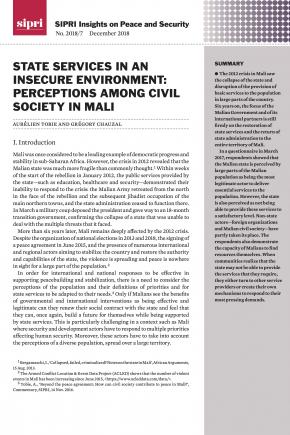The independent resource on global security
State Services in an Insecure Environment: Perceptions among Civil Society in Mali
The 2012 crisis in Mali saw the collapse of the state and disruption of the provision of basic services to the population in large parts of the country. Six years on, the focus of the Malian Government and of its international partners is still firmly on the restoration of state services and the return of state administration to the entire territory of Mali.
In a questionnaire in March 2017, respondents showed that the Malian state is perceived by large parts of the Malian population as being the most legitimate actor to deliver essential services to the population. However, the state is also perceived as not being able to provide these services to a satisfactory level. Non-state actors—foreign organizations and Malian civil society—have partly taken its place. The respondents also demonstrate the capacity of Malians to find resources themselves. When communities realize that the state may not be able to provide the services that they require, they either turn to other service providers or create their own mechanisms to respond to their most pressing demands.
Table of contents
I. Introduction
II. Background
III. Perceptions of insecurity
IV. Responses to insecurity
V. Local demand for state services
VI. Perceptions of the state’s ability to deliver basic services
VII. Local initiatives to fill the security gap: Security from below
VIII. Conclusions


